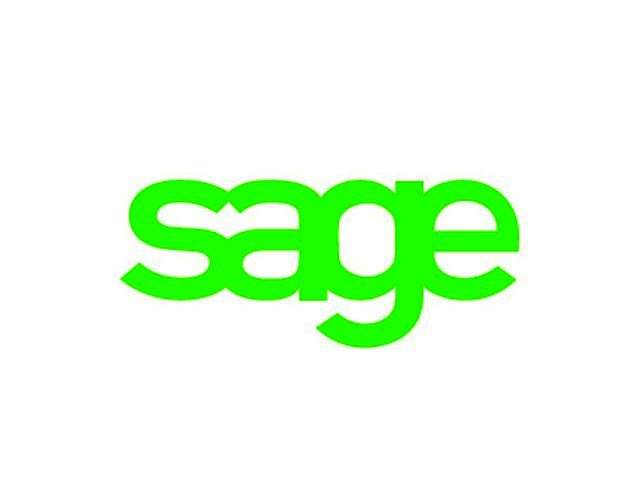As Africa’s mid-sized enterprises expand across the continent and other parts of the world, so they should look at putting in place enterprise resource planning (ERP) platforms that will allow them to seamlessly manage multiple legislative environments, currencies and languages.
That’s the word from Keith Fenner, Chief Sales Officer of Sage X 3 AAMEA, Executive Director and Head of Sage Middle East. He says that mid-sized African companies are now aggressively looking for growth in other parts of the continent, and as they expand out of their home countries, their requirements from their business systems become more complex.
International expansion brings with it a range of challenges in terms of managing the laws, financial reporting requirements, and tax regulations of multiple countries, says Fenner. In addition, companies suddenly find themselves needing to manage multiple currencies and languages in their businesses. With French, English, Portuguese and other languages used for official business, companies need a multilingual platform. They also need one that can support the dozens of currencies used across Africa.
“Many companies in Africa are still running their businesses on home-grown legacy systems or even using manual processes,” says Fenner. “In many cases, they don’t have the appetite for the time, risk, and cost attached to rolling out a complex, high-end platform. For that reason, we’re seeing a lot of demand in the market for systems that can be rapidly deployed to address the growing pains of a company on a global expansion drive.”
He adds that enterprises should be looking for alternatives to the monolithic ERP packages of the past, since the global environment demands that they evolve quickly in response to changing laws, regulations, and business conditions.
“Today’s enterprise applications must be flexible and modular to cater for the complexities of a global business,” says Fenner. Gartner puts it thus: “The automatic quest for on-premises, single instance, single mega-vendor ERP capabilities (i.e., monolithic ERP) is dead.”
Managing different tax regimes
Fenner notes that one challenge lies in managing the different company and income tax regimes in place across Africa. Each country’s tax authority and treasury has different requirements in terms of financial reporting, return submissions, calculations, invoice formatting and data retention.
A company’s financial system thus needs to be flexible enough to support each country’s needs, while also making it simple to consolidate figures for the expenses and revenues across the global business. The payroll poses further challenges for businesses, says Fenner.
“For many of our clients, complying with payroll rules in different African countries has been a complex and time-consuming exercise,” he notes. “Really large companies can outsource management of the payroll to one of the large outsourcing firms that specialise in processing for multinational companies, but it’s not an affordable option for mid-sized companies.”
Alternatively, some have tried to make do with an ERP system from one of the traditional vendors. The trouble is that Africa - especially its smaller countries - isn’t a major focus for all of the world’s large software companies. The result is that support can be patchy and changes to cater for new laws and regulations are often made slowly.
Point pain
Another option is to use a point solution, be it a custom-developed tool or a locally supported package. But integration of this system with the global ERP platform can be complicated and expensive, says Fenner. This is where the new Sage HR Management platform comes into play.
Sage HR Management is fully localised for the needs of most major African markets and complies with all tax regulations and labour laws. The package streamlines compliance and helps organisations to stay on top of a dynamic and changing HR landscape.
It is completely attuned to the nuances of different African countries, catering (for example) for the different demands of Nigeria’s federal and state tax authorities. “We’ve made it a point of staying at the forefront of HR and payroll legislative changes in Africa, and update our solutions in a timely manner for the latest laws and regulations in conjunction with government and local authorities,” says Fenner.
A fluid environment
Fenner notes that Africa’s regulatory and legal environment is in constant flux, with financial reporting standards, tax regulations, and industry legislation (for example, mining royalties or Mozambique’s New Petroleum Regime) constantly changing. That means companies need flexible solutions that are kept up to date with the latest changes.
He recommends that organisations look for ERP platforms that allow for a choice of cloud and on-premises deployments so that the company can chose the solution that makes sense for each region or country. Modern cloud-based systems make it relatively quick to get a new country up-and-running with a business system ready for local market conditions, yet able to provide consolidated reporting information for head-office.
“Such solutions are a credible alternative to the rigid ERP architectures of the past,” Fenner says. “They improve agility and simplify software management, free up IT resources and reduce costs, accelerate implementation and benefit from a faster delivery of new features and functions.”
He adds: "Globalisation is forcing African enterprises to keep costs under control and increase efficiency, while boosting productivity. The right business solution gives them instant, real time access to business critical data, providing them with maximum control over their operations."





